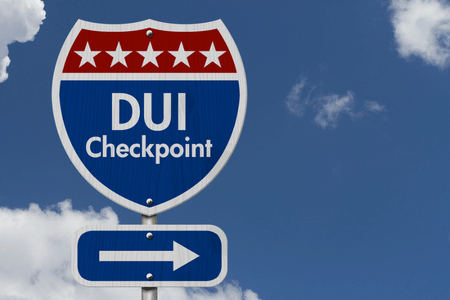The penalties for a DUI in Florida are some of the strictest in the nation and carry lifelong consequences.
The charge could become part of your permanent criminal record, meaning employers and anyone else performing a background check will see it. You could also face stiff fines, up to $5,000, for multiple DUI charges, and some DUI charges even include prison time!
Many DUI clients asked, "Is a DUI a misdemeanor in Florida?" The answer is sometimes. If you've been cited for DUI, you may think that a simple misdemeanor won't affect your life much, but this is far from the truth.
A good DUI defense attorney can help reduce your charges and subsequent penalties or even have your case dismissed. Contact The Denson Firm today to learn more about how we can help you.
Florida laws about driving under the influence are complex, with enhanced penalties assessed for higher degrees of intoxication, stiffer punishment if someone is a multiple DUI offender, and even the chance of jail time. These statutes can be confusing, and many people wonder, "Is a DUI in Florida a misdemeanor or felony?"
In most cases, the first and second driving under the influence (DUI) charge is considered a misdemeanor. "Under the influence" is determined by measuring the amount of alcohol in a person's bloodstream, the blood alcohol content (BAC).
Any substance can result in a DUI charge, not just alcohol, as per Florida Statute § 877.111, which covers what a DUI is considered in Florida.
The legal limit for intoxication is 0.08% BAC, and once a person's BAC measure is higher than 0.15%, the penalties for a DUI are harsher. Furthermore, if you measure 0.15% or higher on your first DUI offense, you will be charged with a "standard DUI" offense.
So if you're wondering when a DUI is a misdemeanor in Florida, it is a misdemeanor in nearly all first- and second-time DUI offenses. But if a first or second DUI results in bodily injury or the death of another person, then the charge will likely be a felony, not a misdemeanor.
If your DUI offense was your first offense, but you caused severe bodily injury or death to another person, your BAC was over 0.15%, or you had a minor in the car at the time, your charge could be a first-degree misdemeanor. However, if your first offense did not include these, you would likely be charged with a second-degree misdemeanor.
A second DUI is usually charged as a first-degree misdemeanor with harsher penalties than a second-degree misdemeanor. Even a third DUI in Florida could be charged as a first-degree misdemeanor, not a felony, if it happens ten years after the second charge and if the driver's BAC was under 0.15%.
A driver that causes serious bodily injury to another person could be charged with a third-degree felony; second and subsequent DUI charges with this impact typically result in a felony.
If you are charged with DUI for the third time, and it's within ten years of your previous DUI offense, then that charge will be a felony as well. Any fourth or subsequent DUI charge is an automatic felony in Florida, and you will be sent to prison with a permanent felony record that you cannot expunge.
Any death or serious bodily injury caused by someone driving under the influence will lead to a felony charge for the intoxicated driver. This offense is the most serious DUI offense and is punishable by a maximum fine of $15,000 and a 15-year prison sentence.

Looking at your charge, you may wonder what class misdemeanor is a DUI. The class of a DUI misdemeanor and penalties depend on a few things, such as whether it was your first offense and your BAC when you were arrested.
Whether you have a felony vs. misdemeanor DUI, all DUI offenses in Florida require you to attend a mandatory DUI class. It covers how alcohol affects the ability to drive and the driver's perception and reflexes.
Second and subsequent DUI offenders in Florida must attend a 21-hour class, which covers the effects of alcohol on operating a motor vehicle.
If you are charged with a DUI for the third time in Florida, you will probably be facing a felony, not a misdemeanor — especially if the third charge is within ten years of the second one. Third DUI charges don't need to have resulted in the injury or death of another person to be considered a felony.
Any DUI charges after the third will be an automatic felony, no matter how long after the third offense the charge occurs.
A driving under the influence charge, even if it's your first DUI charge, can affect your life, from employment prospects to your ability to drive and even your freedom. An experienced DUI defense lawyer can help mitigate the punishment for your DUI, even if it's not your first offense.
Your DUI attorney can use the law effectively to determine whether your rights were violated in the arrest and testing process. They can fight to mitigate your consequences — meaning significantly less jail time and a more minor fine — and help you retain your driver's license.
We can help. Contact The Denson Firm today for a free initial consultation.